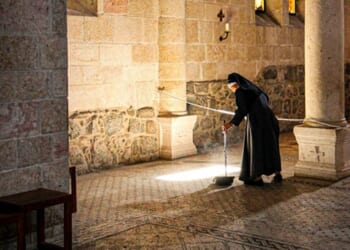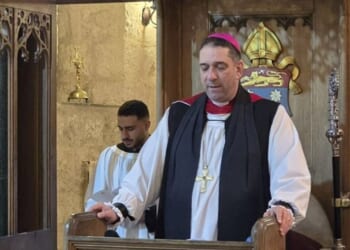A CHRISTIAN officer in the Indian army, has been at the centre of a legal dispute over religious freedom for five years.
The officer, Lt. Samuel Kamalesan, in New Delhi, was dismissed in March 2021 for refusing to enter the sanctum of his regiment’s temple during rituals, on the grounds of his monotheistic faith. He challenged the dismissal in the Delhi High Court later that year.
The High Court, on 30 May, prioritising military discipline, upheld the upheld the dismissal. Lt. Kamalesan then approached the Supreme Court by means of a special-leave petition, heard on 5 October, before a bench headed by Justice Surya Kant. The court has not yet delivered its judgment.
The petition raises the question whether military discipline and unit cohesion can override the constitutional right to religious freedom in the armed forces.
Lt. Kamalesan was a lieutenant in the 3rd Cavalry Regiment, and had refused a command from his superior officer to enter the innermost part of the regiment’s temple to conduct puja (a worship ritual).
The High Court ruled that his refusal constituted indiscipline, and violated “essential military ethos”, noting that obedience to lawful commands was central to Army operations.
Represented by his advocate, Abishek Jebaraj, Lt. Kamalesan said that his regiment maintained only a mandir (temple) and a gurdwara for religious practices, and did not have a multifaith place of worship or church on the premises.
He participated in weekly religious parades at the mandir and gurdwara, and attended festivals observed by his troops, including Deepavali, Navaratri, Lohri, Gurpurab, and Holi.
He requested exemption only from entering the innermost part of the temple during rituals, offering to remain in the courtyard with his troops while observing all formalities, including removing shoes and belt and wearing a turban when required.
He said that his relationship with fellow soldiers was based on “mutual respect, allegiance to the same flag and nation, shared meals, exercises, sleeping quarters, and assignments”, and that fraternity among troops was not limited to participation in religious rituals.
Senior officers repeatedly asked him, he said, to “choose between his faith and serving the army”, which leading to the termination order in March 2021.
The Union government told the High Court that religious practices motivated troops, generated pride, and strengthened war cries. It argued that an officer distancing himself from these practices could affect morale, cohesion, and regimentation, which were critical for operational effectiveness.
The matter is now pending before the Supreme Court, which will decide whether military discipline can justify limiting religious freedom in the armed forces, and whether exemptions can be allowed for officers observing different faiths while serving in uniform.
Tauseef Ahmad and Sajid Raina are freelance journalists based in Kashmir.

















